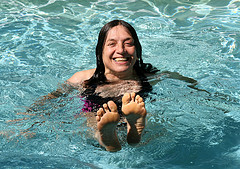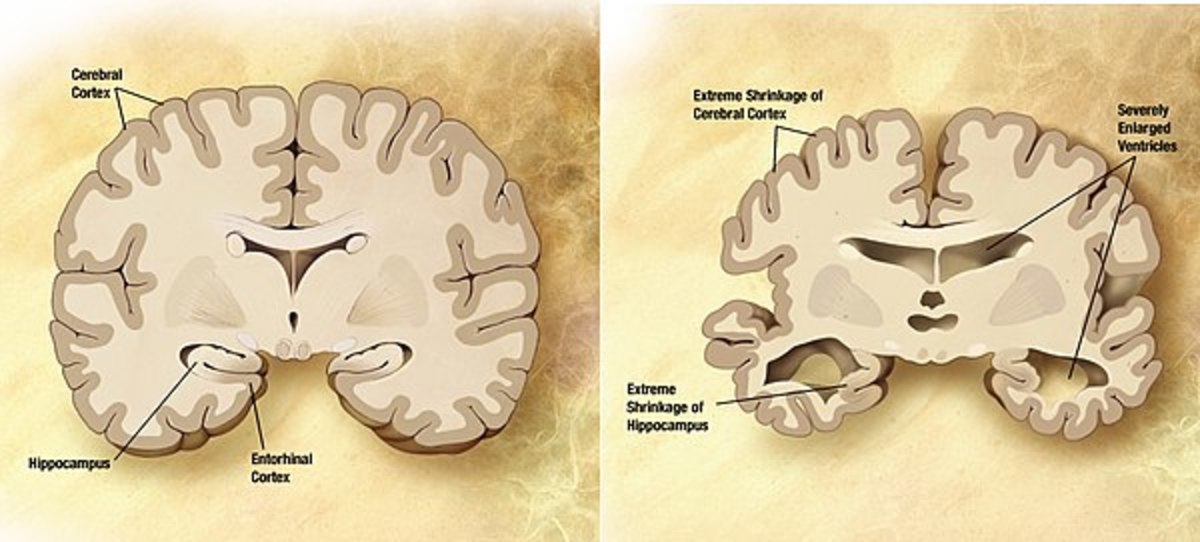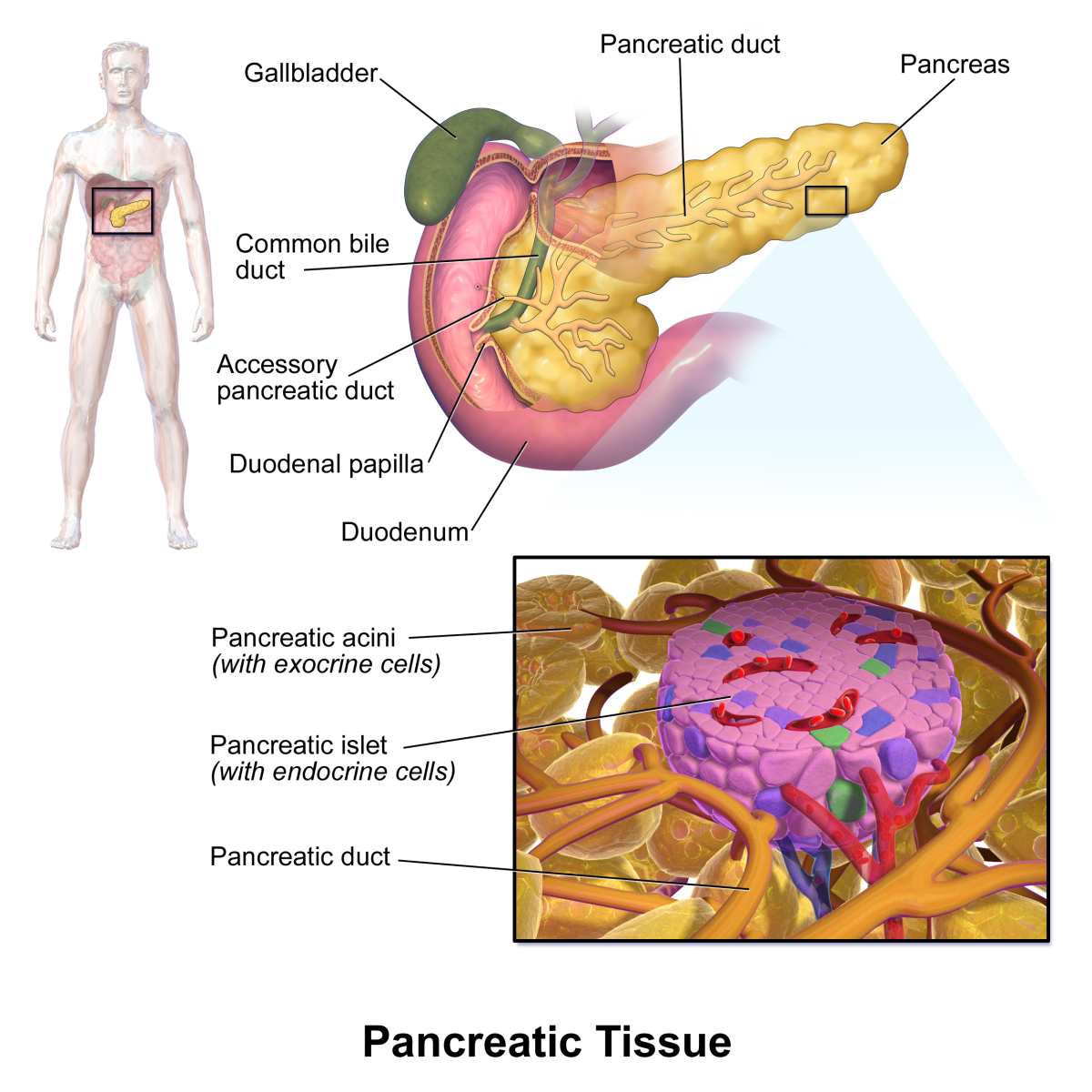How to avoid Alzheimer's and other dementias.
The scary statistics of Alzheimers and associated dementias.
The term 'Alzheimer's Disease', or more usually just 'Alzheimer's', is now used as the umbrella title given to the various forms of dementia that are now afflicting more and more people worldwide.
According to the organisation, Alzheimer's Disease International, in 2010 the global figures for dementia sufferers was 35.6 million with 5.6 million of those being in the U.S and at least 750,000 in the UK. Worryingly this statistic is only set to get worse as things presently stand and in another 40 years the global projection is expected to be well over 115 million.
This increase is directly tied to the fact of an ageing population. People are simply living longer and this fact seems to be proven by the statistic that two thirds of dementia sufferers in the UK alone are women, and it generally accepted that women have a natural tendency to live longer than men.
The financial implications of these figures alone are intimidating given that this vulnerable sector of society already requires an immense amount of help, both financial and practical. Such burgeoning numbers of sufferers mean that this bill can only grow bigger.
So, unless Governments get to grips with the problem soon, by financially supporting the necessary research, not just into drugs to alleviate symptoms, but also into discovering how the various dementias form and finding ways to prevent their development, the final tab to the country, and inevitably the beleaguered tax payer, will become crippling.
Examples of useful exercises.





Developing an anti-Alzheimer's strategy.
Because there is an acute awareness in the scientific communities about how vital research is into this Sword of Damocles that hangs over so many of us, new information frequently breaks into the news adding yet another tantalising piece of the jigsaw to the Alzheimer's research story.
I have taken a look through the most recent of such news stories to see if I could work out a useful strategy to help me minimise my chances of developing any sort of dementia and one factor stood out above all, exercise.
Exercising to avoid Alzheimer's Disease.
In 2006 one scientific study in the U.S suggested that as little as fifteen minutes three times a week of some sort of aerobic exercise, such as walking, was sufficient to effectively cut the risk of developing dementia by 30 - 40%. A recent UK study amended the figures for exercising to forty minutes three times a week. Either way it is apparent that some sort of aerobic exercise is vastly important for the proper functioning of the human body and now we know it is also vital for brain health.
And this importance appears to increase during later life. It is obvious that such exercise enhances the ability of the heart to circulate blood to the brain and that this, coupled with sensible nutrition, will continue to nourish the brain with the nutrients it needs to function properly for longer. Research has also found that improvements can be made to mental acuity even if such exercise is taken up in the later stages of life.
Unfortunately though many of us realise the need for regular exercise throughout life, there are many factors that can stop us taking action. Lack of time due to work commitments, fatigue or simply laziness all play their part in putting off being active but it is useful to remember that, provided we start taking exercise before Alzheimer's actually appears, aerobic exercise can still be beneficial even in old age, and particularly for memory retention, which is probably one of the earliest signs of impending dementia.
The secret of why exercise is the critical factor in memory retention is that such activity improves the size of the hippocampus in the brain. The increase in oxygen and the circulation of nutrients supplied by aerobic activity feeds the hippocampus and thus not only stops its natural tendency to shrink in old age but can actually help it to increase in size. And the importance of this is that the hippocampus is the seat of memory, so any improvement in its size or operating capabilities can only be a good thing.
The double edged sword of stimulating mental faculties.
Whilst many of us believe that keeping mentally stimulated, with chess, crosswords, brain training methods or even just social interaction, is the key to keeping dementia at bay this should not be regarded as the only way to stave of mental deterioration.
In fact, although it may appear to delay the onset of Alzheimer's, studies appear to show that once dementia has set in the rate of decline is actually accelerated. This is thought to be due to such mental stimuli merely masking the onset of the deterioration so that it appears only when the critical mass of damage to the brain, by lesions and plaques, becomes insurmountable. The descent into incapability then looks to be rapid even though it is likely it has been underlying for some time.
Diet as a factor in the prevention of dementia.
Obviously exercise, whether mental or physical, is only one aspect of a range of preventative measures that may avert the crisis of dementia but it has to be allied to good nutrition. Again, most of us in the developed world have some idea of what proper nutrition is or can easily find out what we should be eating, either by our own research or by asking our own physician who will give out a fact sheet.
Nutrition is a vast subject and beyond the remit of this hub but I would just point out that the second largest group of dementias, after Alzheimer's Disease alone, is due to vascular problems, by which I mean that the blood vessels of the brain become damaged and die and this can often be directly attributable to diet.
Having a high fat diet will usually cause high cholesterol which clogs arteries thus leading to high blood pressure and heart disease which will affect the heart's ability to send the necessary nutrient-rich blood to all the tiny blood vessels in the brain. Having a diet high in sugars can lead to late onset diabetes which can also be a cause of vascular decay.
All of these factors can in turn lead to cerebral strokes, either one large one, which can leave the person permanently and irreversibly damaged, or many small strokes which may hardly seem to affect the person until the accumulated damage builds up enough to simply become too great to surmount.
Your brain is in your hands.
It seems obvious that taking such simple measures to avoid Alzheimer's and its horrific cousins is the only sensible way forward. Not only would we be healthier and have more energy to enjoy our lives whilst we are younger but we would also be safeguarding our brains against one of the most frightening diseases of our time.
If we want to keep on being who we presently are, if we do not want to lose the personality that presently defines us, thenwe must all take responsibility for protecting these precious aspects of ourselves, and we must do it immediately and with commitment.








